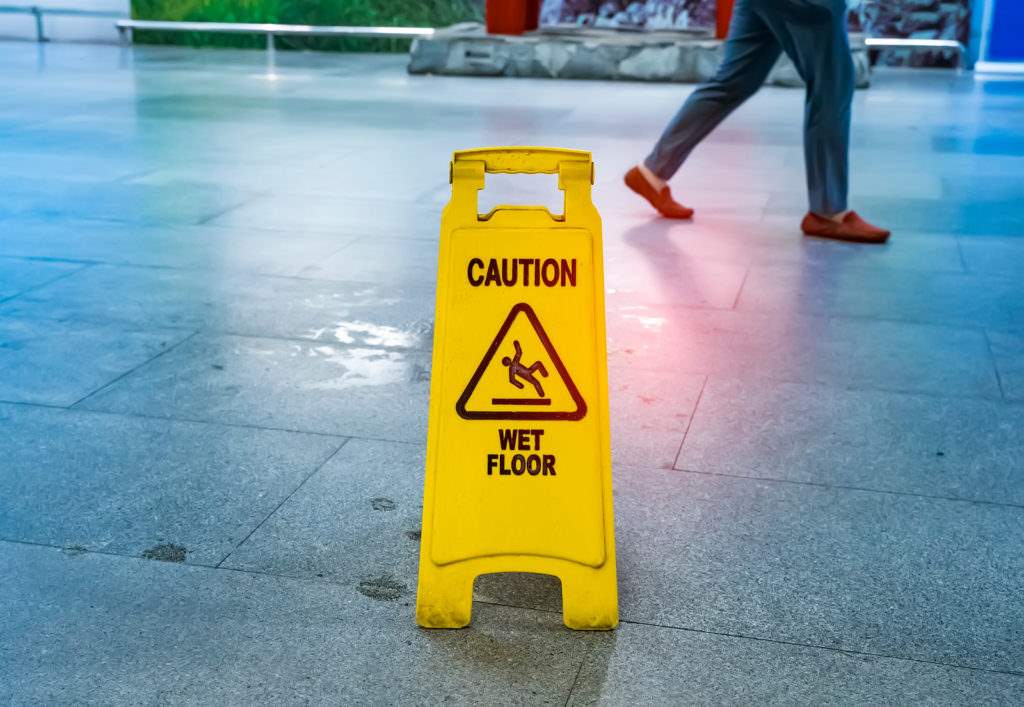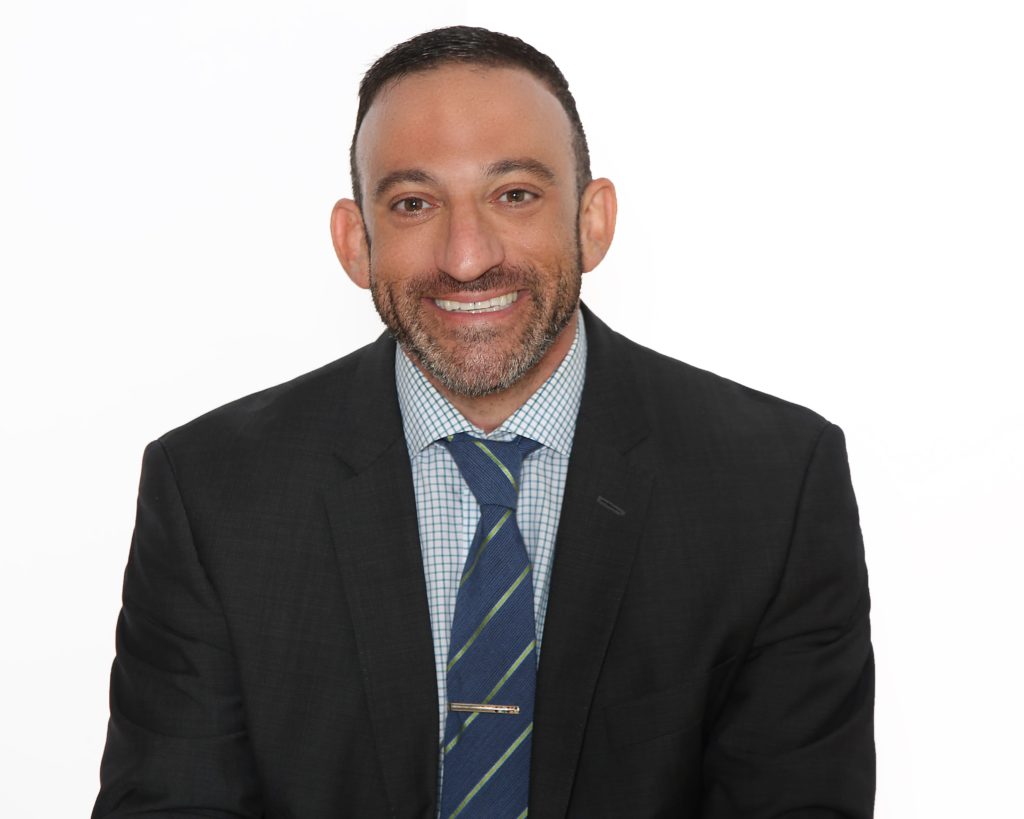While Clearwater is known for its clear blue waters and white sands, its shopping scene also makes it stand out with its various malls, specialty shops, and markets. However, what happens when a day of shopping ends up with you in the emergency room because you slipped and fell in a store? Will you be on the hook for the resulting medical expenses and bills?
In the below blog post, to better help you understand these specific scenarios, we will discuss liability following a slip and fall accident in a Clearwater store, review the remedies you can pursue following these accidents, and explain how an experienced Clearwater slip and fall accident attorney can help you.
Proving Liability Following a Slip and Fall Accident in a Clearwater Store

In Florida, a property owner is responsible for protecting invited visitors from foreseeable harm and ensuring the premises are free of hazards that could cause an accident. However, when property owners do not take their responsibilities seriously, and accidents happen, the property owner could be held financially and legally responsible for any resulting injuries.
However, to hold a property or business owner accountable for your losses following a slip and fall accident, you first need to establish the owner’s negligence by showing:
- You had the property owner’s consent (either implied or expressed) to be on the premises
- A hazardous condition existed
- The property owners knew or should have known about the dangerous condition through ordinary care of the premises
- You slipped and fell because of the dangerous conditions
- You endured significant injuries, losses, and damages as a result
Furthermore, to gain compensation following a slip and fall accident in Clearwater, you must establish that the business owner had actual or constructive knowledge of the dangerous condition that caused your slip and fall.
- Actual knowledge: This is when the business or entity knew about the specific hazard at the time and place of the slip and fall accident but decided not to take care of it.
- Constructive notice: When a hazard occurs regularly, was foreseeable and preventable, or existed long enough that the property owner or business owner should have reasonably known about the condition, it can be said the owner had constructive notice.
However, establishing negligence and showing that someone had actual or constructive knowledge of a hazardous condition can be challenging. That is why if you slipped and fell in a Clearwater store and suffered significant injuries, contact an experienced Clearwater slip and fall accident attorney as soon as possible.
When you work with a legal professional, they can promptly begin investigating your accident and gathering evidence to show fault, notice, and damages.
Common Causes of a Clearwater Store Slip and Fall Accident
Some of the more common causes of a Clearwater store slip and fall accident include:
- Merchandise in the store that is sticking out, resulting in a tripping risk for those walking by who overlook the goods
- Spills in the store that have not been taken care of by the employees
- Slippery sidewalks located next to the Clearwater store
- Unsecured rugs by the store’s exit or entrance
- Cords running along the store’s floor
- Goods, displays, or other types of merchandise left on the floor or those that have fallen that have resulted in a tripping threat
However, this list only indicates a small fraction of some of the more common scenarios that can lead to a Clearwater store slip and fall accident. That is why if you sustained harm because of a slip and fall and want to know your legal options consider discussing your accident with a knowledgeable Clearwater slip and fall attorney as soon as you can. Your lawyers can review the situation, go over the legal actions you can take next, and help you figure out what legal remedies you may have.
Common Injuries Resulting from a Clearwater Store Slip and Fall Accident
The injuries resulting from a slip and fall accident can range in severity and type depending on the circumstances.
However, the more common injuries that tend to develop after these accidents include:
- Broken bones
- Significant cuts, lacerations, and abrasions
- Traumatic brain injuries
- Spinal cord injuries
- Soft tissue injuries
- Head and neck injuries
- Back Trauma
- Hip issues
Financial Damages You May Pursue Following a Clearwater Store Slip and Fall Accident
If you sustained harm in a Clearwater store slip and fall accident due to another person’s negligence or intentional acts, you may be able to go after financial damages for the injuries and losses you endured. These damages generally include:
Economic Damages
These damages refer to compensation for the tangible losses that result from an accident.
They include things such as:
- Current and past medical expenses related to doctor visits, prescription medications, surgeries, and other types of care
- Ongoing medical care
- Lost income, reduced earning capacity, and other lost work opportunities
- Replacement domestic services
- Other expenses
Non- Economic Damages
Non-economic damages refer to compensation for the more subjective losses after an accident.
These losses are usually hard to prove and quantify and include:
- Pain and suffering
- Inconvenience due to the resulting injuries
- Humiliation
- Mental anguish
- Loss of enjoyment and quality of life
- Loss of companionship and consortium
Yet, to figure out which of these damages you may be able to pursue, consider discussing your slip and fall accident and resulting losses with a knowledgeable Clearwater slip and fall accident lawyer. These legal professionals can review your injuries, determine which of these financial damages you can go after, and help you fight for maximum compensation.
The Time Limitations to File a Legal Claim Following a Slip and Fall Accident in Clearwater
Even if you can establish liability following a slip and fall accident in Clearwater, you still need to remember that the time to file legal action is limited. According to the statute of limitations, victims of a slip and fall accident in Clearwater will only have two years from the incident to file a suit against the property or business owner. If you fail to file within this time, the court will stop you from pursuing the compensation you deserve.
That is why, after a slip and fall accident in Clearwater, contact an experienced slip and fall accident attorney as soon as possible. They can determine when you need to submit your suit and filed the required documentation before the time expires.
Taking Action After a Clearwater Slip and Fall Accident
If you want to have a better chance of establishing liability after a slip and fall accident in a Clearwater store, you should take certain actions after this accident to help protect your legal rights. These steps include:
Get to a Health Care Professional
After a slip and fall accident, get a doctor examination right away. It is not uncommon for serious injuries such as internal bleeding or brain trauma to remain hidden for a few days after an accident. However, if you do not get treatment right away, the more devastating these injuries can become. That is why it is critical to get looked over after these accidents.
In addition, obtaining a medical report following the slip and fall can help your legal claim as it can detail the extent of your injuries and provide a link between the harm endured and your slip and fall accident.
Report Your Accident
Depending on where the slip and fall accident happened, you want to make sure you report the incident to the individual in charge, such as the business owner or manager, and let them know that you sustained harm because of the slip and fall.
You may also need to file a report regarding this accident. However, as you are preparing this report, make sure it is as detailed as possible, as it can help you establish liability, especially when the other side tries to dispute what happened.
Make sure you include:
- What caused the accident
- The time and date of the slip and fall
- A description of the injuries
Once you complete the report, ensure you get a copy of your statement for your records.
Watch the Comments You Make
Even though you need to complete a report regarding what happened, you will still want to limit what you say to those around you regarding the accident or when the insurance companies call you to discuss the situation. While you may think innocent comments such as “I’m fine” or “I’m sorry” may mean nothing, when it comes to liability and damages after a slip and fall accident, these types of comments can be used against you.
That is why after a slip and fall incident, do not apologize for anything that happened, make any definitive comments regarding what you think happened, or take any of the blame. Rather, if you need to talk about the incident, keep these conversations between you and your attorney.
Contact a Slip and Fall Accident Attorney To Help You Gather Evidence

Gathering documents or photos after a slip and fall accident is probably the last thing you want to worry about, and in many situations, you may not even be able to do so. Fortunately, when you retain an experienced slip and fall accident attorney to handle your case, you will not have to worry about gathering this information or documents yourself.
Rather, these lawyers can investigate your accident and look for photos and videos related to your accident, visible injuries, and the hazard that caused your accident. They can also look for witnesses who saw what happened and get their testimony, which can help validate your legal claim.
Present Your Attorney With Any Evidence You Have
After a slip and fall accident, you will want to create a file with certain documents, including:
- A copy of the report you prepared after the accident
- Any communication you had between the business owner or manager of the store or the insurance company
- Expense records, bills, and other receipts related to the money you spent related to the accident and your injuries
Your attorney can use this file to help prepare the strongest legal claim on your behalf and assist you as you go after the financial recovery you deserve.
Contact an Experienced Clearwater Slip and Fall Accident Lawyer Today for a Free Case Consultation
If you suffered harm in a slip and fall accident in a Clearwater store and want to know who you can hold responsible for these injuries, do not wait any longer to get the legal help you need. Instead, reach out to an experienced Clearwater slip and fall accident lawyer to discuss your legal options.
Moreover, when your retain an attorney, they can:
- Look for evidence that can help show what happened, who was at fault, and the extent of your damages.
- Hold the wrongful parties accountable for your losses and harm.
- Bring in certain experts to help validate your cases, such as financial specialists, doctors, and accident reconstruction specialists,
- Tackle the settlement negotiations and go after a just offer.
- Fight for every last dollar you deserve by taking your case before a judge or a jury if necessary.
If you are dealing with extensive emotional, physical, and financial hardships because of a Clearwater store slip and fall accident, find out what you should do next by contacting a Clearwater slip and fall accident attorney today for a free case consultation.
Schedule A Free Consultation